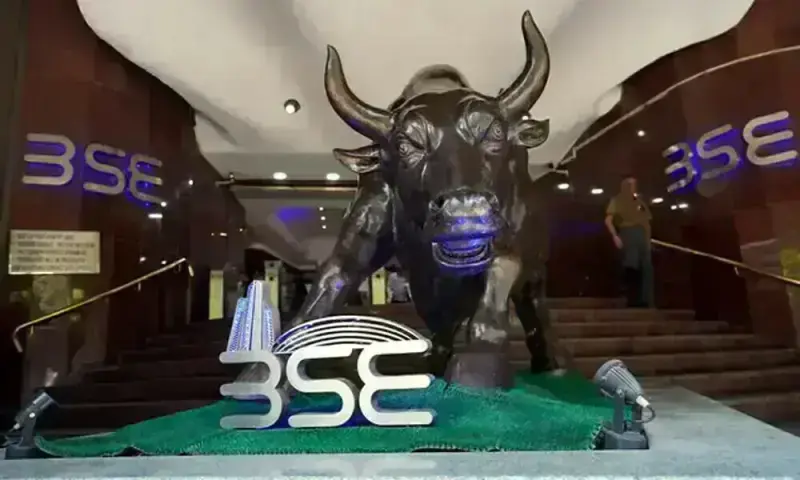By Reuters
Copyright brecorder

Indian equity benchmarks declined on Monday, dragged by key information technology stocks that lost roughly $10 billion in combined market capitalisation after the U.S. unveiled a steep fee on new H-1B visa applications.
The Nifty 50 slipped 0.49% to 25,202.35, while the BSE Sensex dropped 0.56% to 82,159.97.
The broader small-cap and mid-cap indices also declined 1.2% and 0.7%, respectively.
The Nifty IT index the second-heaviest sector on the benchmarks, tumbled 3%, with nine of its 10 constituents in the red.
Infosys TCS Tech Mahindra and Wipro declined about 2.2%-3.1%, leading the Nifty 50 losers. The sell-off erased around 854.33 billion rupees ($9.67 billion) in market value from the IT gauge.
On Friday, U.S. President Donald Trump’s administration announced a $100,000 fee on new H-1B applications.
Indians made up 71% of approved H-1B beneficiaries last year. India’s $283 billion IT industry, which derives 57% of revenue from the U.S., has long leaned on the visa program and outsourcing to support growth.
“The new H-1B visa fee will raise operating costs for Indian IT services companies,” said Sweta Patodia, assistant vice president at Moody’s Ratings. “It adds to the threat of a possible 25% outsourcing tax under the proposed HIRE Act.”
Pharma stocks which also rely heavily on U.S. revenues, also fell 1.4%. Ten of the other 14 major sectors declined, as foreign investors likely stepped up their selling, according to analysts.
“Despite trade uncertainty and higher H-1B fees, the government’s pro-growth stance through tax cuts and policy easing still makes Indian equities attractive,” UBS Global Wealth Management said in a note.
Among other stocks, Adani group companies extended gains after regulators dismissed two Hindenburg allegations. Adani Power surged 20% on news SBI Mutual Fund and Citadel Securities bought shares offloaded by GQG.



